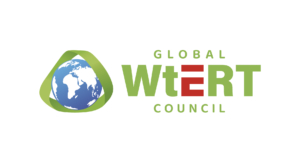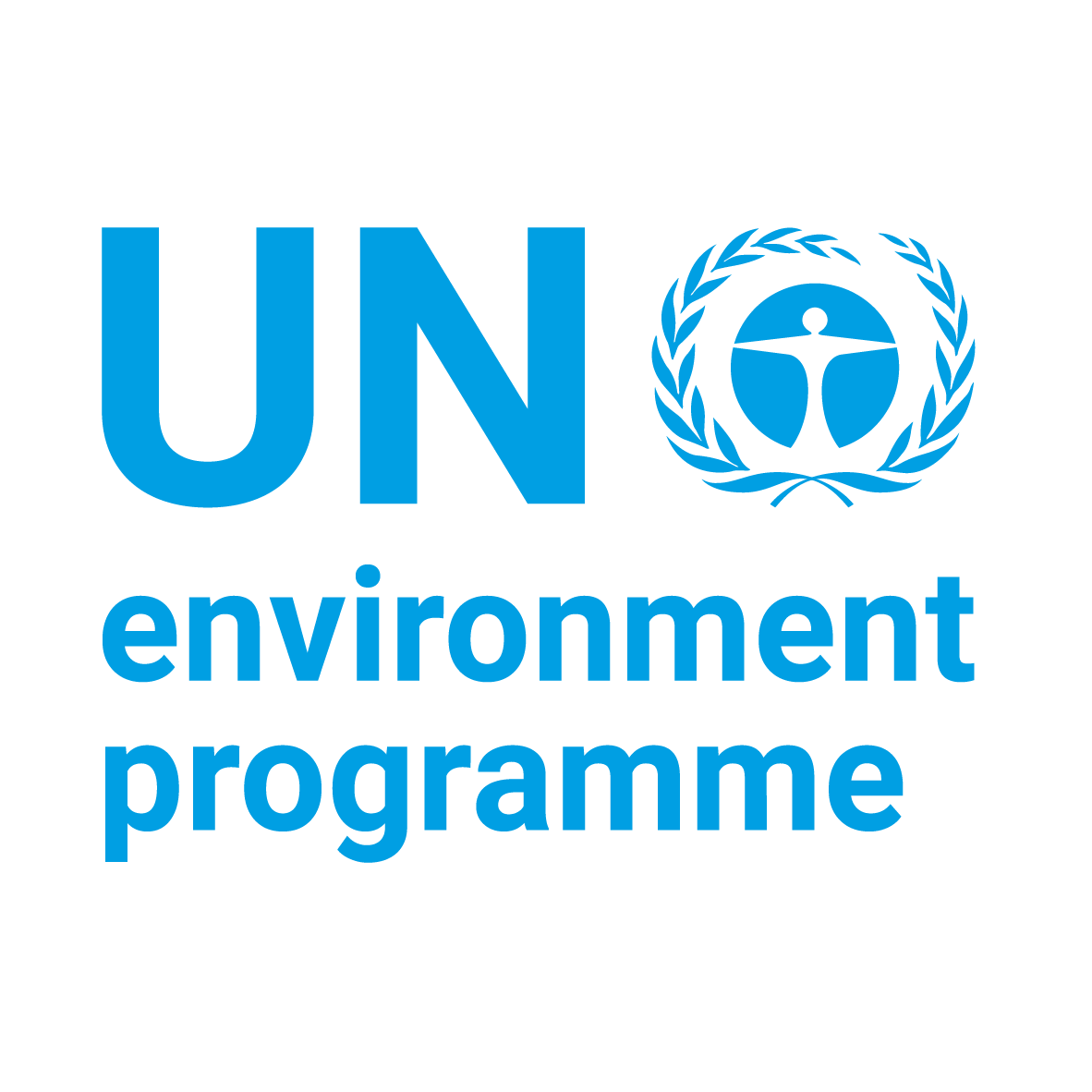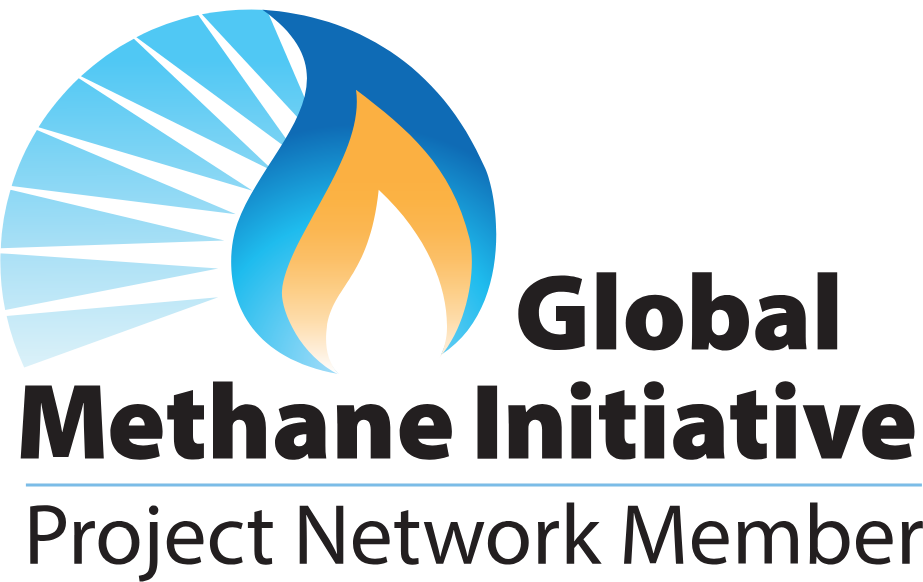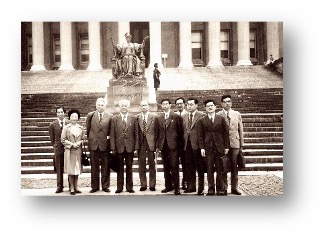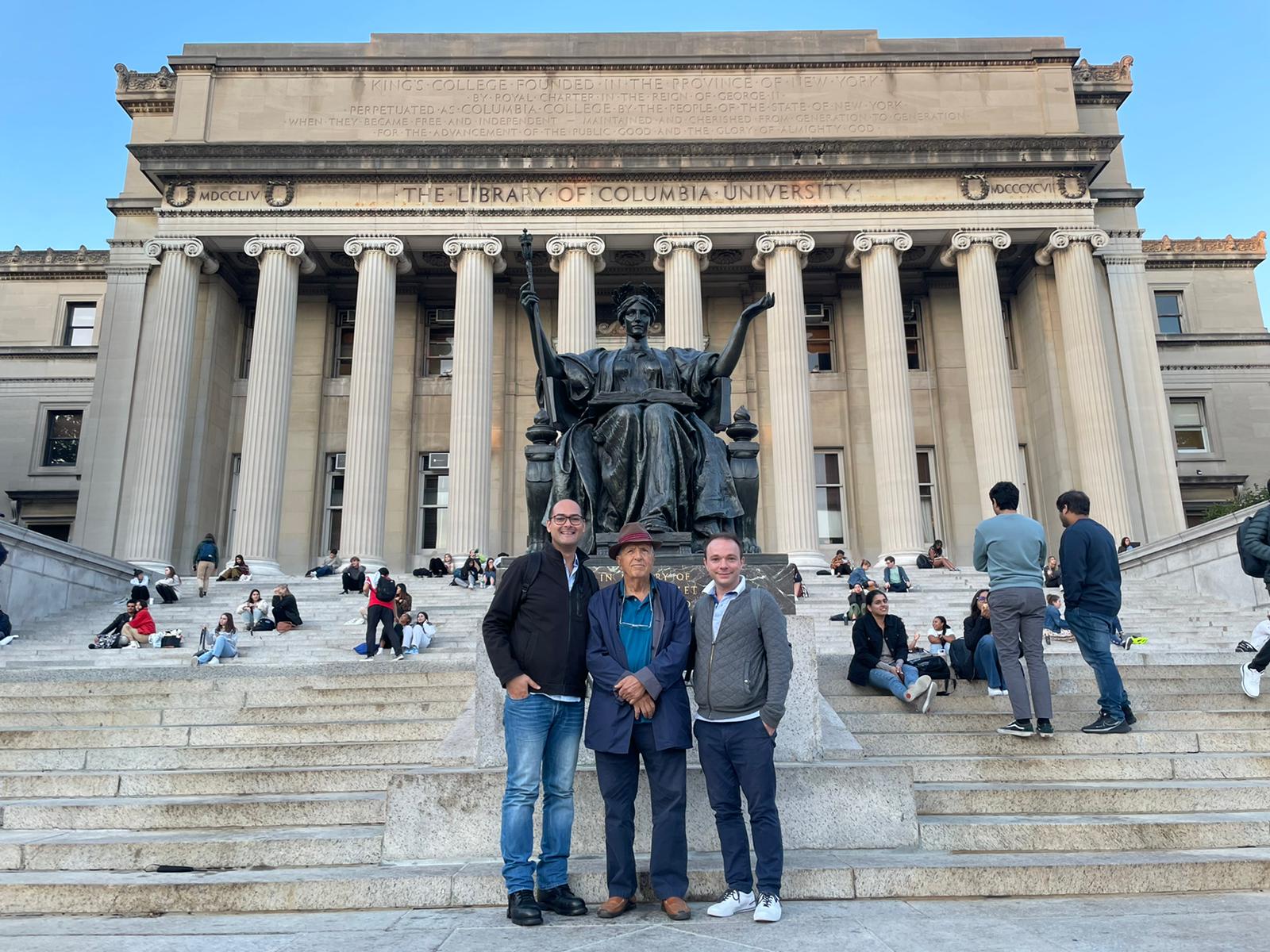The Story of WtERT®
Our Origins at Columbia University
Professor Nickolas John Themelis fundamentally reshaped the way the world understands and manages waste. A Greek-American scholar trained as a chemical engineer, he combined academic rigor with deep industrial experience in extractive metallurgy. Early in his career, Themelis made significant contributions to industrial processes, most notably the development of the Noranda Process—a pioneering technology for continuous copper smelting that dramatically reduced sulfur emissions. These innovations laid the groundwork for his later impact in the emerging field of industrial ecology, where he would go on to champion sustainable approaches to resource recovery and environmental protection.
But it was his transition into academia at Columbia University in New York in 1980 that truly defined his legacy. At Columbia, he immersed himself in the study of environmental sustainability, applying a systems-thinking approach to complex engineering challenges and recognizing the urgent need to rethink how we manage earth’s resources, including waste.
In 1995, Prof. Themelis introduced the field of industrial ecology to Columbia engineers. A year later, in 1996, he founded the Earth Engineering Center (EEC) to bridge the gap between earth sciences, sustainability, and technology.
In 1997, he led the transformation of Columbia’s historic Henry Krumb School of Mines—founded in 1864—into a new academic discipline: Earth and Environmental Engineering. As the first chairman of the new department, he built a home for engineers dedicated to solving the world’s most pressing environmental problems. Under his leadership, Columbia’s engineering school gradually shifted its academic focus from “the three M’s—Mining, Materials, and Metallurgy” to “the three E’s: Earth, Environment, and Engineering.”
This marked a turning point. Columbia Engineering, guided by Themelis’s vision, positioned itself at the forefront of research and innovation in sustainable technologies, especially in the realm of waste and resource management.
At the time, in the early 2000s, the U.S. and many other countries were still heavily reliant on landfilling, often unaware—or unwilling to confront—the long-term environmental consequences. At Columbia’s Earth Engineering Center, Professor Themelis launched a series of groundbreaking studies on the life cycle of municipal solid waste. These studies explored not only the environmental damage caused by landfills, but also the untapped potential of recovering energy and materials from residual waste.
From these efforts, in 1999, the Waste-to-Energy Research and Technology Council (WtERT) was born.
Initially conceived as a research initiative—a small group of passionate scientists, engineers, and students dedicated to developing science-based, climate-friendly solutions to landfilling non-recyclable waste—WtERT quickly evolved into something much larger. As awareness of climate change increased, so too did the urgency of addressing methane emissions from landfills, a challenge that WtERT had already been working on for years.
WtERT became a beacon for credible, data-driven answers to a global challenge that too many ignored: What do we do with the waste we can’t recycle?
The birth of a Global Network Emerges
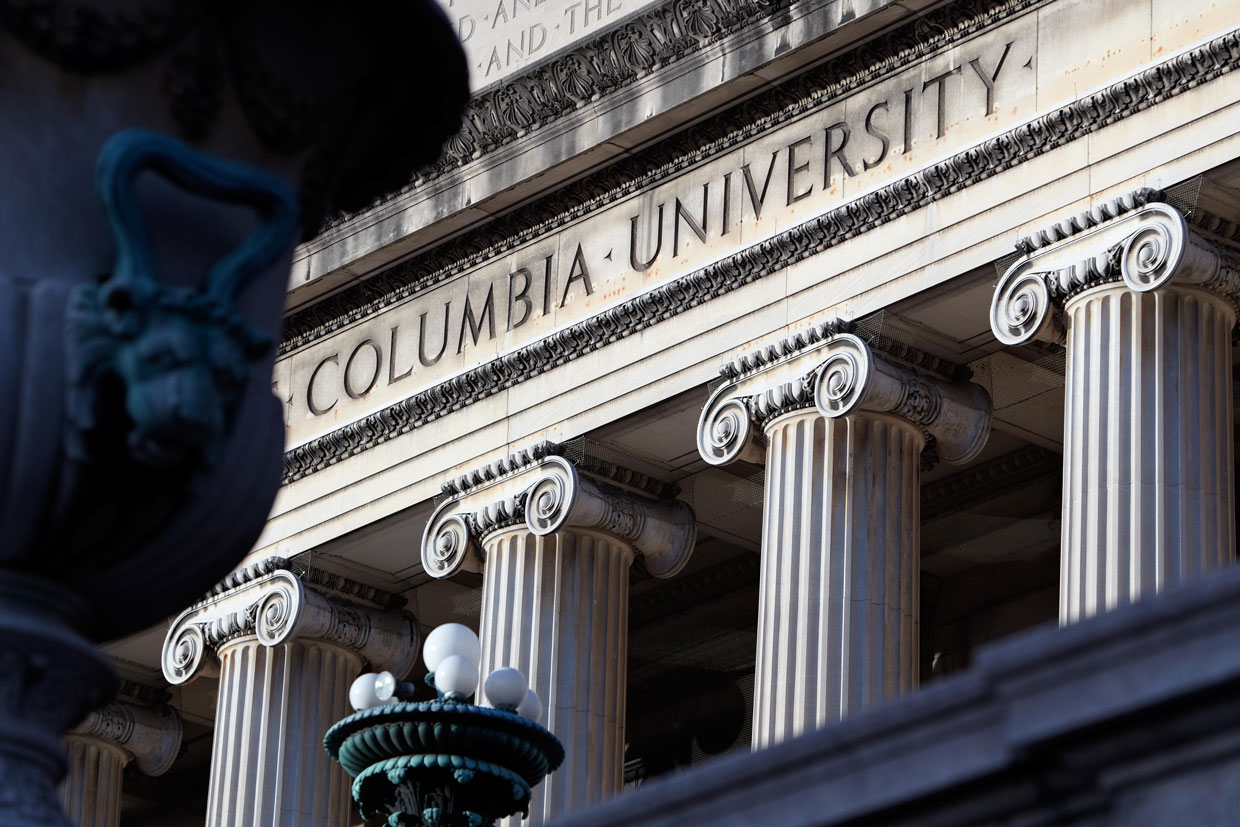
Following its success in the United States, the WtERT initiative expanded globally growing from a Columbia-based academic council into a global network. Universities and academic research institutions in Europe, Asia, and Latin America expressed interest in joining the movement to promote best available technologies for the recovery of energy and materials from waste.
In 2011, to better coordinate this growing international collaboration, Columbia University helped establish the Global WtERT Council, Inc., a 501(c)(3) nonprofit organization registered in New York (EIN: 45-3842166). Operating under the registered trademark WtERT®, now the organization brings together engineers, scientists, policy experts, and industry leaders from across the world.
From Campus to Global Council
Today, WtERT® is a global network with national chapters and research partners in over 30 countries. Each chapter shares a unified mission while adapting strategies to local needs, legislation, and infrastructure. They wanted to replicate Columbia’s model, to use scientific methods and engineering research to guide waste policy.
WtERT® is now a registered trademark, ensures consistent values and scientific rigor throughout this international network, continuing its intellectual legacy with headquarters at Columbia University in New York.
The WtERT works in collaboration with:
- Leading universities and research centers worldwide
- Government agencies at local, national, and intergovernmental levels
- International organizations (e.g., UN Environment Programme, CCAC)
- Industry leaders in waste management, energy, and technology development
Through its network, WtERT plays a key role in shaping global discourse on waste and climate. It serves as a hub for knowledge exchange, innovation, and policy guidance in the waste-to-energy sector.

A Special Bond: Columbia and Zhejiang University, A 40+ Year Legacy of Cooperation
The deep academic partnership between Columbia University and Zhejiang University (ZJU) dates back to May 1979, when ZJU’s senior leadership became one of the first Chinese university delegations to visit American campuses after China’s reform and opening-up. Their visit to Columbia marked the beginning of decades of educational exchange and collaboration.
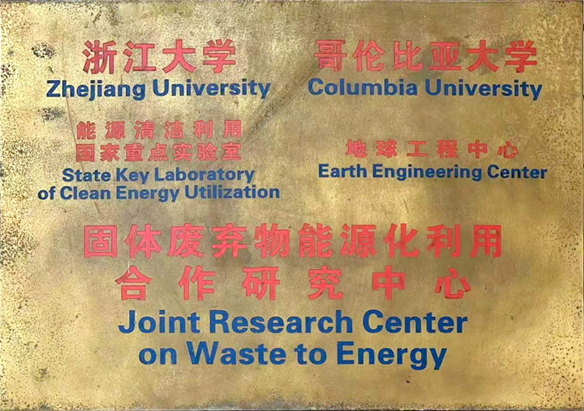
Building on this historic connection, Columbia’s Earth Engineering Center partnered with ZJU’s State Key Laboratory of Clean Energy Utilization to establish a joint research platform focused on advancing Waste-to-Energy (WtE) technologies. Together, they played a key role in supporting China’s remarkable shift toward Waste-to-Energy. Today, China operates the largest network of WtE plants in the world, reducing landfill methane emissions and powering cities with clean energy.
Transferring Leadership to a New Generation
In recognition of Zhejiang University’s excellence in WTE research and global impact, WtERT’s international leadership transitioned to ZJU in recent years. Professor Jianhua Yan now serves as Chairman, and Professor Qunxing Huang as Executive President of the Global WtERT Council.
This handoff not only celebrates ZJU’s cutting-edge research but also reinforces WtERT’s mission to be a bridge between East and West, uniting academic innovation and policy development to accelerate global action on climate change. It reflects the strength of transnational cooperation between the United States and China the two largest economies and waste generators in the world and the power of academic diplomacy to tackle global challenges.
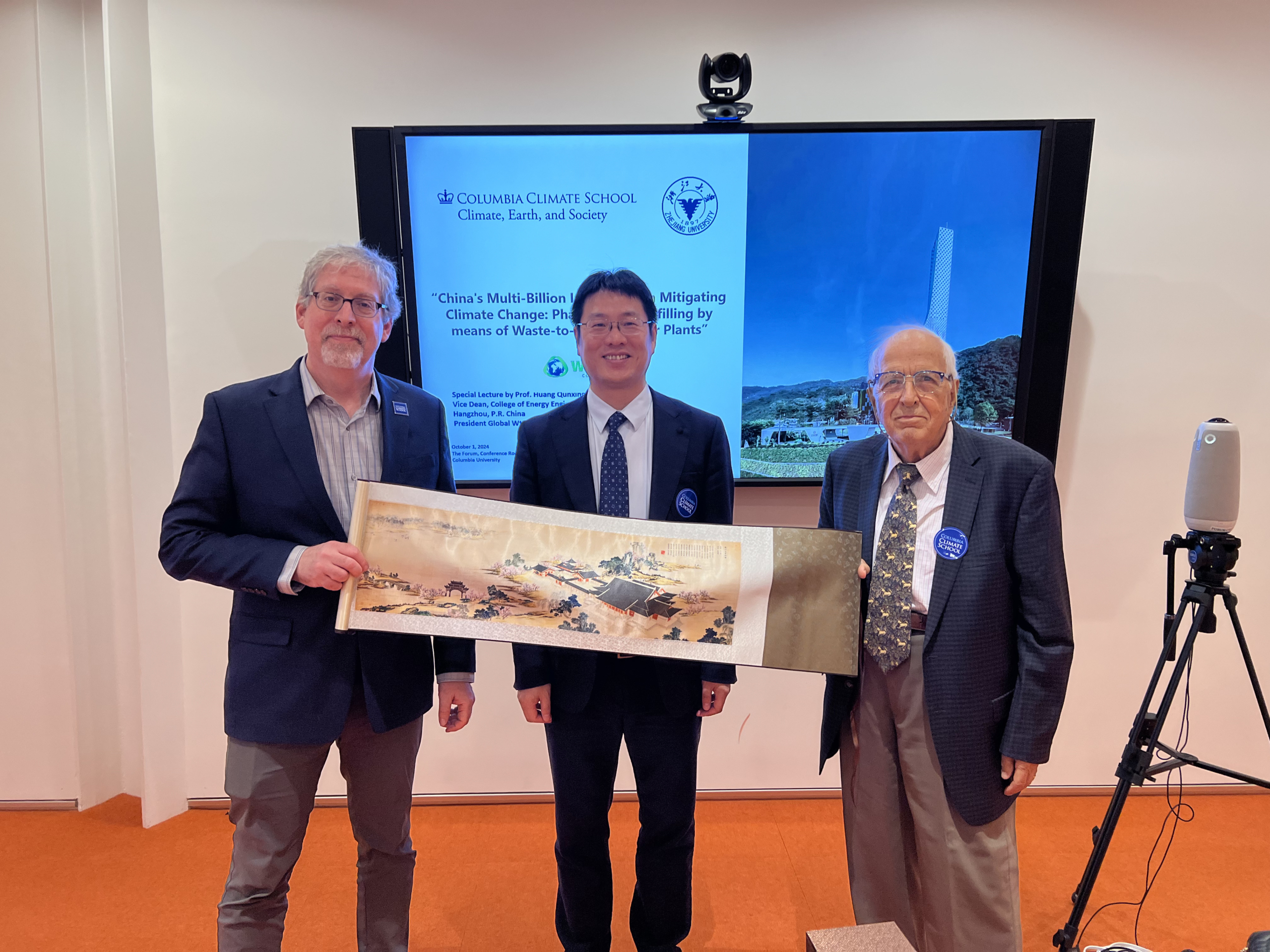
Our Mission and Core Objectives
Our work is far from done. But every landfill diverted, every student inspired, every data point shared, brings us closer.
Science-Based Leadership in Sustainable Waste Management
Our mission is to advance global waste management systems through the application of science, engineering excellence, and long-term thinking. WtERT® identifies and promotes the best available technologies (BAT) for energy and material recovery, grounded in rigorous research and life-cycle analysis.
Building Global Capacity Through Knowledge and Collaboration
We support governments, industry, and academia by delivering objective, science-based recommendations and facilitating international collaboration. Through open-access resources, events, and expert networks, we aim to build capacity in all regions, especially low- and middle-income countries.
A Vision for Equitable, Waste-Free Futures
WtERT® envisions a world where landfilling is minimized, and waste is transformed into valuable resources. We strive for a future where all countries—regardless of income—can access and implement the best waste management technologies adapted to local needs, with sustainability, equity, and innovation at the core.
Join WtERT®
WtERT is not just a network. It is a movement — one that began in a lab at Columbia University and now spans the globe. We are not just a think tank — we are a working alliance. WtERT hosts international symposia, contributes to United Nations initiatives, and advises governments on how to build sustainable, climate-smart waste systems. From helping shape methane-reduction strategies to documenting the success of China's massive WTE investment, WtERT continues to lead with facts, not ideology.
Whether you're a researcher, policymaker, engineer, or advocate—there's a place for you in the WtERT global community. Let’s build a more sustainable future by transforming how the world manages its waste.
📩 For collaboration opportunities, contact us: info@wtert.org
🌍 To learn more visit our website: www.wtert.org
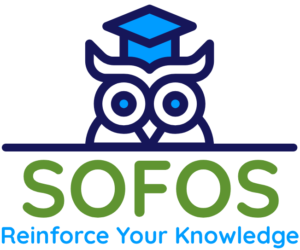
Welcome to SOFOS: A Comprehensive Online Database
Managed by WtERT® and the Earth Engineering Center at Columbia University, SOFOS is a vast collection of research dedicated to the advancement of sustainable waste management that promotes knowledge sharing through numerous publications, dissertations, and studies.
Reinforce Your Knowledge by exploring our database. Enter your search inquiry below:
